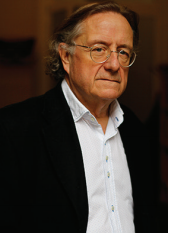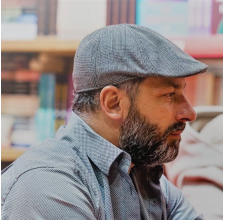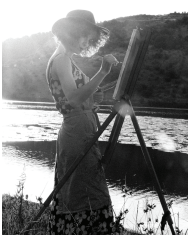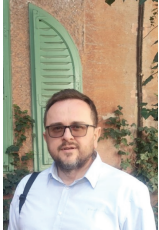Josep Ramoneda was born in Cervera, Spain, in 1949. He is a political philosopher and is very active in the Spanish intellectual debate about current politics. After his academic career of teaching contemporary philosophy (1975-1990), in 1994 he founded the Centre of Contemporary Culture of Barcelona, an important institution in European scale, which he directed until 2011. Presently he publishes La Maleta de Portbou, a journal of humanities and economics, and he is director of the European School of Humanities in Barcelona, founded also by him. He is also director of one of the main editorial groups in Spain.
1. Culture is a commodity of first necessity. It contributes to people’s well-being, as it provides a variety of instruments for the human adventure. It is a complicating factor, which enriches experience, a moment that, from Montaigne, we know constitutes us as human beings. But culture is no guarantee of anything: neither of goodness, truth, happiness, or success. The worst atrocities have been committed in the name of culture.
- The human being is a relational being who communicates by signs. Culture is information. It is the ability to acquire and transmit knowledge and experience. To appropriate them and to transform them. That is, to advance the creation of meaning. Life has no meaning, but meaning is necessary for life. The precariousness of the foundations of culture is its essence. And the expression of its humanity […]
- The passion for culture is the assumption of its fragility. This is why culture has a tragic dimension. Which means it is the recognition of the contingent nature of the human experience and is an expression of the will to overcome the vertigo that it generates. With culture we confront the absurdity of life. In the denial of the tragic sense of life is the germ of barbarism.
- Faced with its tragic character, culture can provide an ironic dimension: the serene assumption of contingency. Irony is the scalpel that highlights the precariousness of generalized beliefs, of shared prejudices, of ready-made ideas. Of all those things acquired in the name of which, as Voltaire warned, humans can commit any atrocity. […]
- Many cultures, one humanity. In this sense, culture is the basis of any humanist proposal. Of any discourse that assumes the centrality of human beings as subjects and objects of knowledge and experience.
- […] Every system of domination generates an effective cultural system: ours and the others.
- Cultural policies of governments tend to enhance heritage and industry. Heritage as an exaltation of tradition and confirmation of roots and continuities. Industry because culture generates distrust of political power (especially the conservatives of the right and the left who see it as an outsider and subversive, fearing that it will escape), and linking culture to business is the best way to neutralize it. […]
- However, the spontaneous philosophy of cultural actors implies a will for autonomy and a critical attitude. A country that is not capable of generating spaces for denial by way of culture is a stiff society that bears the seal of decay.
[…]
- Promiscuity among cultural industries, investors and artistic programmers creates a superstructure subjecting creators to a lattice of fashion and evidently impoverishing styles. […] The quality control mechanisms of the cultural republic are broken. The media dominates the cult of the consecrated figure and the love of noise. […]
- The archive and the virtual experience. What will become of culture in the world of social networks? A large archive favours memory and exchange, but does infinite information encourage creativity or stimulate revival? […] The framework of culture is in full mutation.
From La Maleta de Portbou







